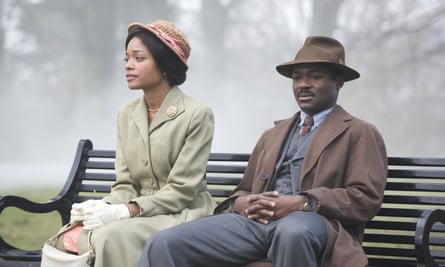Andrea Levy wrote to understand where she came from; I read her to understand where we come from. I was 23 when Small Island was published in 2004 and had just started working at the London Review Bookshop. The voice of the protagonist, Hortense, a Jamaican woman who worked hard and expected more from everyone, reminded me of my maternal grandma and her nursing friends, all of whom I respectfully called “aunty”. It was the first time I had read a depiction of people like my relations in the pages of a novel. I had already encountered another Jamaican Hortense in literary fiction in Zadie Smith’s triumphant debut, White Teeth. However, it is Levy’s Hortense, who is devoted to Britain – the Mother Country – who truly brought me a deeper understanding of home.
How often, it seems, the Windrush generation is often more British than the British; their upbringing was strict, under traditional British colonialism. They honoured and adored the Queen as their head of state, their language is formal and accented RP, and their manners correct; they are so serious that you cannot help but smile.
In reading Small Island, I came to further appreciate the heartbreak and disappointment my grandma experienced in coming to England, the isolation, the cold, the fear of being told you didn’t belong. The discrimination she and her peers felt in every area of their existence as they fought to create a better life in a country they had loved from afar and had thought of as home.

My grandma hadn’t explained any of this to me; she wanted me to grow up as a “proper English” without the shackles of the past. And so it was through Hortense that I felt as though I had seen my grandma depicted for the first time.
As a teenager, I had read Sam Selvon’s The Lonely Londoners, published in 1956, and felt his homesickness against the grey, unkind and unforgiving backdrop of postwar London. Hortense, however, represented the woman who wiped my nose, combed my hair and held my hand tight as we crossed the busy south London roads of my childhood. Hortense allowed me to better understand the pursed lips of my grandma and her friends when the unspeakable happened, when injustices were carried out. Small Island shed light on my culture and began my lifelong obsession in hearing and amplifying stories missing from mainstream publishing.
Many people, like me, came to Levy’s work with Small Island, which was in fact her fourth book. (Her first, semi-autobiographical, novel, Every Light in the House Burnin’, was published in 1994.) Small Island won the Orange prize for fiction, Whitbread book of the year in 2004 and the Commonwealth Writers prize in 2005, and Levy became a household name. But it wasn’t a given that she would write; she only started in her mid-30s, after her father died. It was as though she was channelling her parents’ generation in writing those books, giving voice to the hardworking people who came to the UK for a better life and were silenced by the injustices of class and race in British society. Despite the hard topics, there is also a lightness, a comic tone that runs through them. It shows the skill of a writer who knows her characters and has embodied their world.
While waiting for Levy’s next book, I was inspired to go back to the black British writers I discovered when I ran the black literature section of Foyles bookshop on Charing Cross Road in London. Bernardine Evaristo, Ben Okri, Diran Adebayo, Courttia Newland, Linton Kwesi Johnson. It was like reading afresh: I was older and Levy’s portrait of black British people had shifted my understanding and helped shape my activism.
The Long Song was published in 2010 and shortlisted for the Booker prize. Its haunting and beautiful prose shifted something in me and opened a new perspective on a topic I thought I understood. This was a new vista for Levy, exploring themes of slavery, freedom, uprisings and war, but she kept her wit as she led us through this territory. To have watched the recent BBC adaptation it felt as though she was at the cusp of inspiring a new readership.
With Levy’s death, we have lost an incredible talent, a brave, bold voice, a titan of British literature. But what we gained from her craft is understanding the challenges of becoming yourself in a different place and the ability to question the idea of belonging. These are ideas we can all share in and learn from for generations to come.
